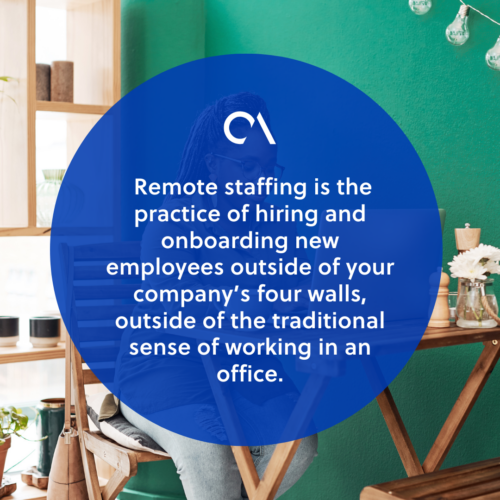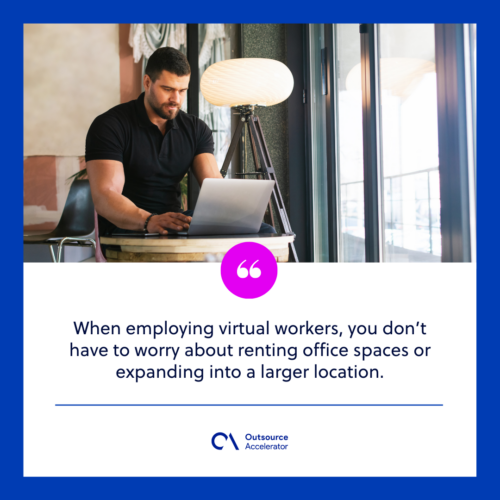Utilizing remote staffing to a business’ advantage

Long before the COVID-19 pandemic, there were companies that already took advantage of remote staffing. From lower costs to exceptional outputs, virtual workers are about the same as in-house employees. As for the management team, one advantage of having remote staff is that you could encourage the team to be more resourceful when it comes to finishing projects and running after deadlines.
Now that almost everyone has migrated from traditional offices to virtual working spaces, the trends of remote staffing have been picking up the pace since early last year.
Defining remote staffing
To start, remote staffing is the practice of hiring and onboarding new employees outside of your company’s four walls, outside of the traditional sense of working in an office.
Virtual employees can work at home, at a coworking space, in their favorite coffee shop, or even somewhere overseas. The location doesn’t matter, what’s important is that they are able to render their services within the prescribed working hours and deliver their outputs on time.

Remote staffing: A post-pandemic business savior
Remote staffing became the new setting for most of us, and it goes beyond working at home while wearing pajamas. It also enabled companies and employees to cut costs. This means no more renting out office spaces, no more wasted hours in commuting, and no more office utility bills to pay, among others.
Back in March 2020, almost every organization had to migrate from traditional offices to working remotely in a span of less than a week. With the sudden changes came the challenges of computing extra operational costs—businesses had to adopt an alternative model to keep their lights on and to keep their employees safe and healthy.
Advantages of remote staffing
What’s listed below are just some of the advantages that remote staffing brought to the firms that had adopted the new model of offloading jobs to their remote staff. Keep in mind that remote staffing may not be the be-all and end-all solution for your firm. There are still organizations that allow their employees to work from home and come into the office whenever they like.
Here are some of the benefits of remote staffing:
Lower operational costs
When employing virtual workers, you don’t have to worry about renting office spaces or expanding into a larger location. There are also reports of fewer employees calling in sick or late because of inclement weather and other uncontrollable circumstances. More labor force equals improved efficiency for the company.

No geographical limitations
Virtual workers can get their outputs delivered within the day from anywhere. As long as the employees are connected to the Internet and they have their devices, managers can expect that work will be done.
Access to a large talent pool
Full-time employees, part-time workers, and freelancers are swarming in every talent pool within every industry right now. As a virtual employer, you get to choose the best candidates available, given that their requirements and skills meet your expectations.
All that being said, remote staffing is a business trend that took every industry by storm—and it’s here to stay.
MVP Asia Pacific is one of the leading offshoring agencies in the Philippines. The services they offer are what other companies are looking to expand, such as customer service, data entry work, software & web development, marketing, and graphic design. If offshoring is your game, contact MVP Asia Pacific today.







 Independent
Independent




